VET APPROVED

The information is current and up-to-date in accordance with the latest veterinarian research.
Learn more »Click to Skip Ahead
Hedgehogs are not commonly kept as pets, and new parents may not know what foods are best to feed them and what foods you should avoid.
Join us while we look at the hedgehog’s dietary requirements. We will list as many foods they can eat as we can and tell you a little about them and how to find them.
We’ll also cover how much protein and fat they need and what foods lead to obesity and other health problems for the hedgehog to help you maintain a healthy diet for your pet.
Hedgehogs are protected by law in some European countries as well as in the United States. Local regulations controlling the importation and sale of hedgehogs vary and should be investigated before adopting one.

Foods Hedgehogs Eat in the Wild
Wild hedgehogs are primarily insectivores. However, they are opportunistic foragers and frequently consume carrion, fallen fruit, and small animals if the opportunity arises.
- Insects (primarily)
- Small vertebrates (snakes and lizards)
- Birds (eggs and sometimes chicks)
- Snails
- Slugs
- Small rodents (mice or baby rats)
- Crustaceans (such as crabs)
- Fruit
- Fungi
- Carrion
Despite insects being the primary diet of wild hedgehogs, a diet consisting solely of insects is NOT recommended for pet hedgehogs, as this can lead to mineral imbalances (primarily involving calcium and phosphorus) and metabolic bone disease.
Nonetheless, insects (especially gut-loaded insects) do make fantastic additions to a pet hedgehog’s diet (alongside kibble as a primary base).
1. Crickets
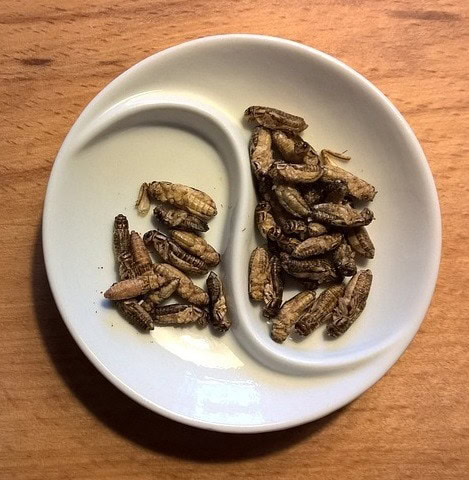
You can find crickets live, freeze-dried, or canned. We recommend live crickets whenever possible because they provide mental stimulation as well as exercise while your pet is trying to catch them. Crickets provide chitin and are high in protein.
2. Mealworms
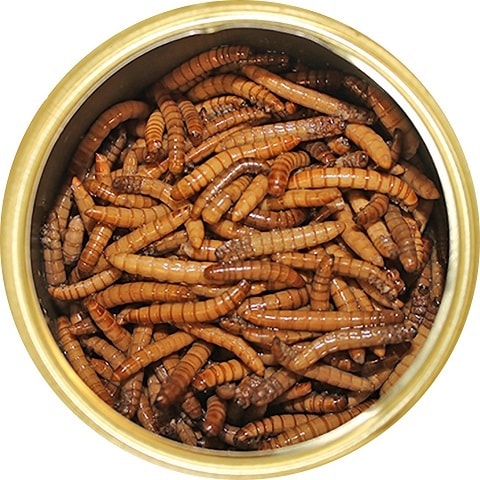
Mealworms are another insect you can purchase in multiple forms. Mealworms are even better than live crickets because you won’t need to worry about them jumping away, but they still move a lot and provide mental and physical stimulation for your pet. Crickets provide chitin (which hedgehogs use as fiber) and are protein-rich.
3. Waxworms
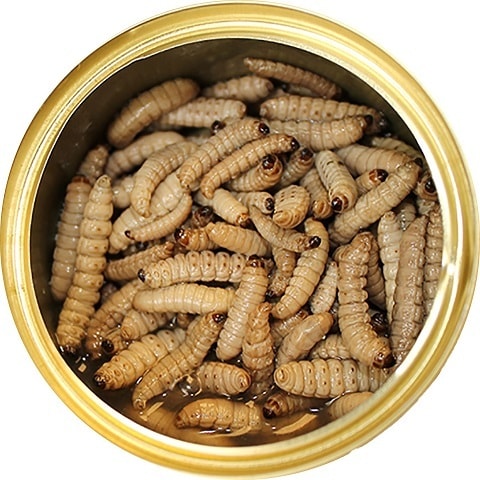
Waxworms are quite a bit higher in fat than crickets or mealworms, so these should be an occasional treat.
4. Caterpillars
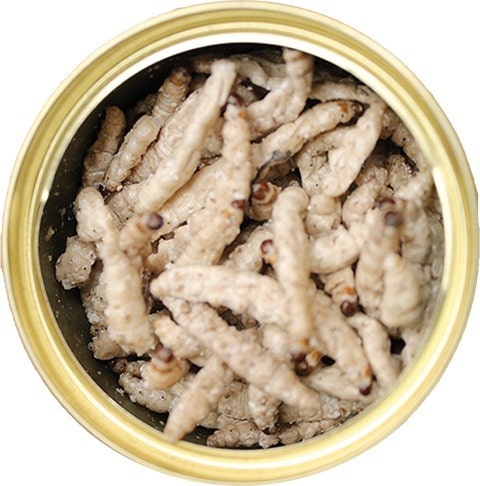
Caterpillars are another high-protein food that contains a high amount of fat. Since caterpillars are slow-moving, it’s usually fine to purchase the freeze-dried or canned versions and pass them out as treats on occasion.
5. Snails
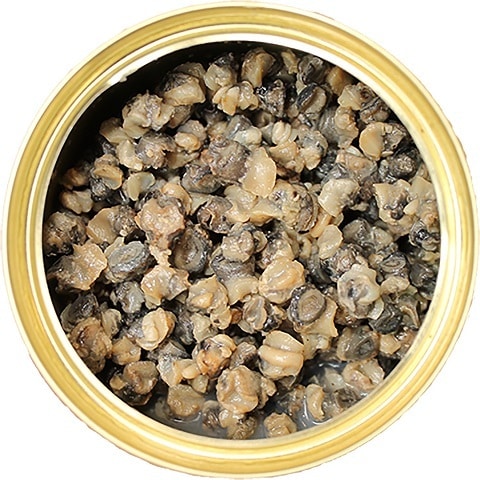
Snails don’t provide chitin, but they are high in protein and low in fat. As treats go, snails are one of the better choices.
Related Read: Do Hedgehogs Eat Poop? What You Need to Know!
Gut Loading
Before feeding many insects to your hedgehog, we strongly recommend gut-loading the insects. Gut loading is a process where you feed your insects nutritional meals for a few days to pack them with nutrients, which allows the insects to transfer the nutrition to your pet. Gut loading is another good reason to feed your hedgehog live insects when possible.
- TIP – Pet hedgehogs should not eat too many insects. As mentioned earlier, this can lead to mineral imbalances and possibly metabolic bone disease.

Best Foods to Feed Pet Hedgehogs
Pet hedgehogs should eat high-quality animal-based pellets (kibble) that contain 30 to 50% protein (on a dry matter basis) and 10% to 20% fat. However, do note that many factors can influence your pet’s nutritional needs, such as their age, sex, reproductive status, and activity levels (to name a few). As such, it’s best to discuss your pet’s nutritional needs with your vet to ensure that you’re feeding them something that meets their unique needs.
6. Hedgehog Food
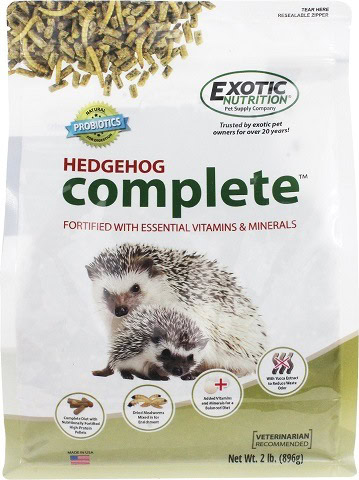
Hedgehog food is naturally going to be one of the best choices because it will contain the correct balance of fat and protein, as well as provide important nutrients specific to your hedgehog’s health. There are many brands of hedgehog food available, but it can be difficult to find, especially if you live in a rural area.
7. Dry Cat Food
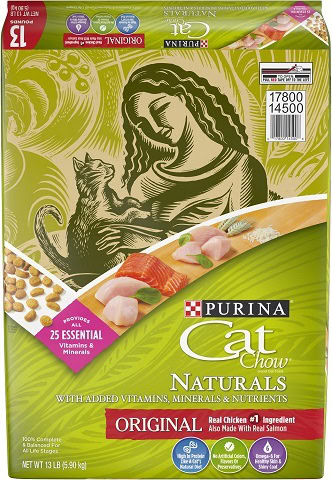
Dry cat food is an excellent second choice, and many people recommend using cat food as their main food source due to its availability and high-quality ingredients. The thing to remember when buying cat food is to use a brand that has enough protein and fat for your pet’s needs. You also want to make sure the first ingredient is animal meat and not a carbohydrate.
8. Dry Dog Food
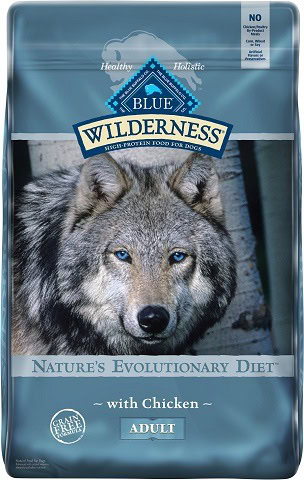
Dry dog food is not as good as cat food, primarily because food that’s complete and balanced for dogs may not meet a hedgehog’s requirement. Compared to cat food, it’s more of a challenge to find a good brand because dog food tends to have less protein. We have found that dog food takes more shopping around before an appropriate option can be found.
9. Lean Meats
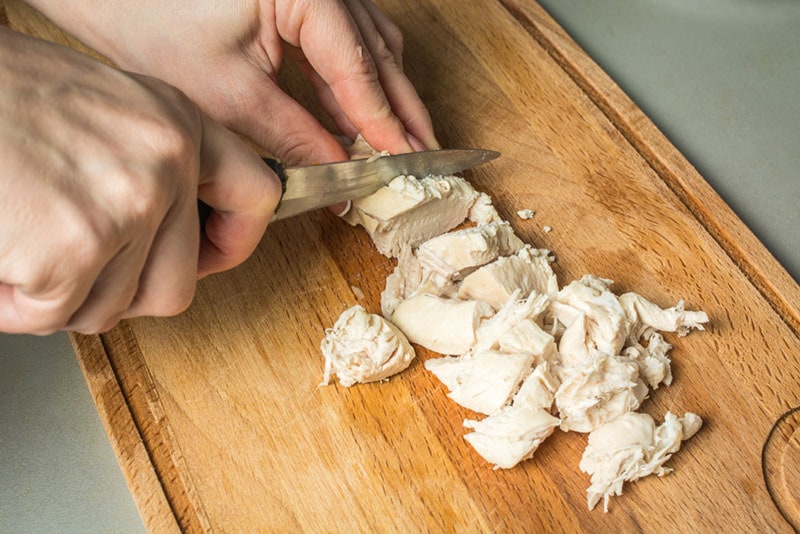
Lean meats like chicken and turkey can make a great snack. You cannot feed a hedgehog a diet of lean meat exclusively because they need other nutrients, but it does make a great addition to your pet’s diet.
10. Hard Boiled and Scrambled Eggs
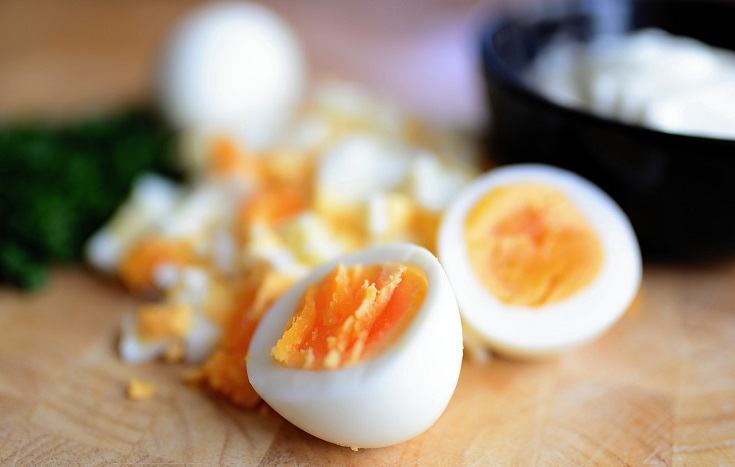
Hard boiled and scrambled eggs are high in fat but also high in protein and make a great treat from time to time. You can make them healthier by removing the yolk before serving.
11. Water

All life needs plenty of clean water to stay healthy, and the hedgehog is no different. We recommend you always keep a constant flow of clean water within the hedgehog’s reach so they can stay hydrated at will. Do note that while most hedgehogs can learn to drink from a bottle, it does take them some time to learn how to do so. As such, they need to be monitored when they’re being transitioned to a bottle drinker (which is considered more hygienic for them).
12. Fruits

Hedgehogs can eat most berries, and they are fond of apples. You can also find that your hedgehog likes bananas, cherries, peaches, watermelon, papaya, and kiwi. Fruits should only be offered sparingly as treats, as they aren’t nutritionally appropriate to form a large amount of your pet’s diet.
13. Vegetables
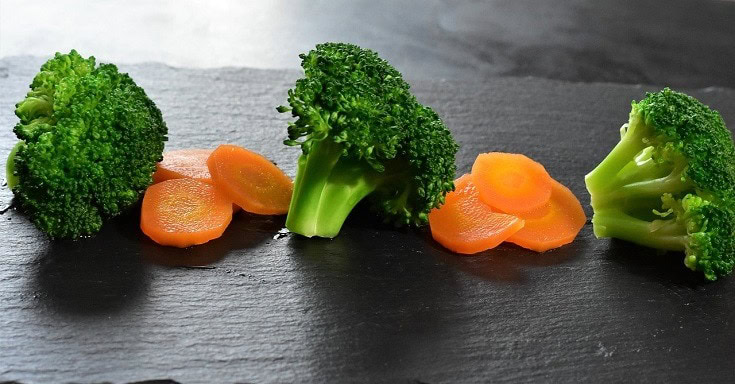
Hedgehogs often do like vegetables and curiously sample them, but they have a bit of difficulty digesting them, and as such, they should only be considered a last resort when it comes to treats. Hedgehogs have a very poor ability to digest cellulose (found in plant matter), and vegetables shouldn’t form a large portion of their diet.

The 6 Foods Hedgehogs Should Avoid
- Avocado – Avocado is considered toxic for many pets and is best avoided.
- Grapes – Like avocados, grapes are toxic for some pets, so it’s best not to offer them to your pet hedgehog.
- All Dried Fruits – Fruits, in general, are not great for hedgehogs; dried fruits are exceptionally high in sugar and are, therefore, best if avoided. They are also a potential choking hazard.
- Potatoes & Other Starchy Vegetables – Potatoes provide no beneficial nutritional value to your hedgehog but are high in calories and carbohydrates, which can lead to obesity. Starchy vegetables are also hard for your hedgehog to digest.
- Raw meat – It is best to not offer a hedgehog moist foods, which is why meats offered to them should not be served raw. Raw meat may also be a source of pathogens (such as coli) if not sourced or handled properly.
- Milk – Almost all dairy products that contain lactose can cause severe diarrhea in hedgehogs very rapidly and are not recommended for them. Hedgehogs are considered very sensitive to lactose.
You may also want to read:
- Can Hedgehogs Eat Carrots?
- Can Hedgehogs Eat Chocolate? What You Need to Know!
- Can Hedgehogs Eat Oranges? What You Need to Know!
- Can Hedgehogs Eat Celery? What You Need To Know!

Final Thoughts
Of the 13 foods we have listed as safe to feed your hedgehog, most would agree that high-quality cat food is the easiest choice as it’s inexpensive, easy to find, and contains all of the necessary ingredients in the proper ratios. If you have access though, hedgehog food is the obvious choice.
As always, do keep in mind that the guidelines provided in this article may not always apply to your pet, owing to their unique needs and current health status. As such, we strongly recommend consulting an exotic veterinarian for more information about your pet’s needs.
We’ve reviewed some of the best gear for hedgehogs, see our top picks here:
Featured Image Credit: Best dog photo, Shutterstock
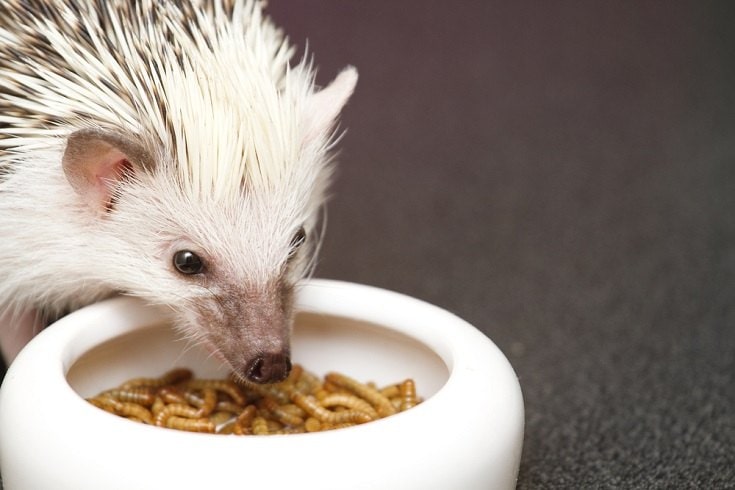





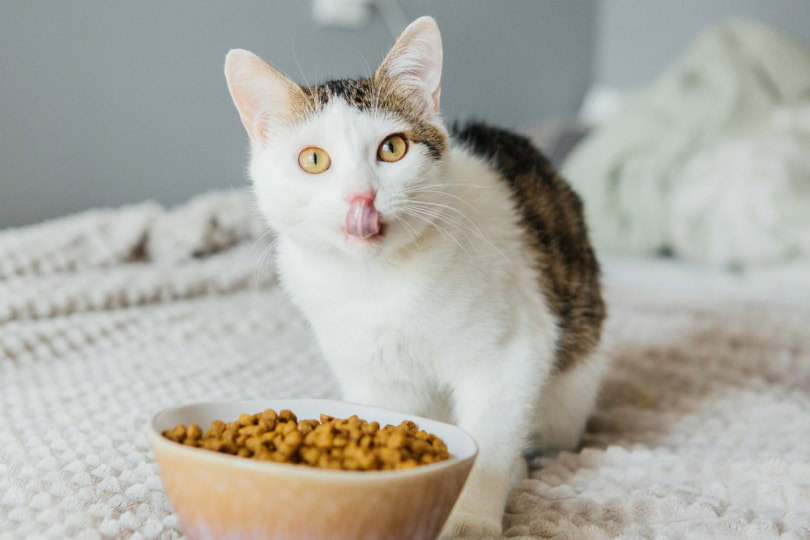
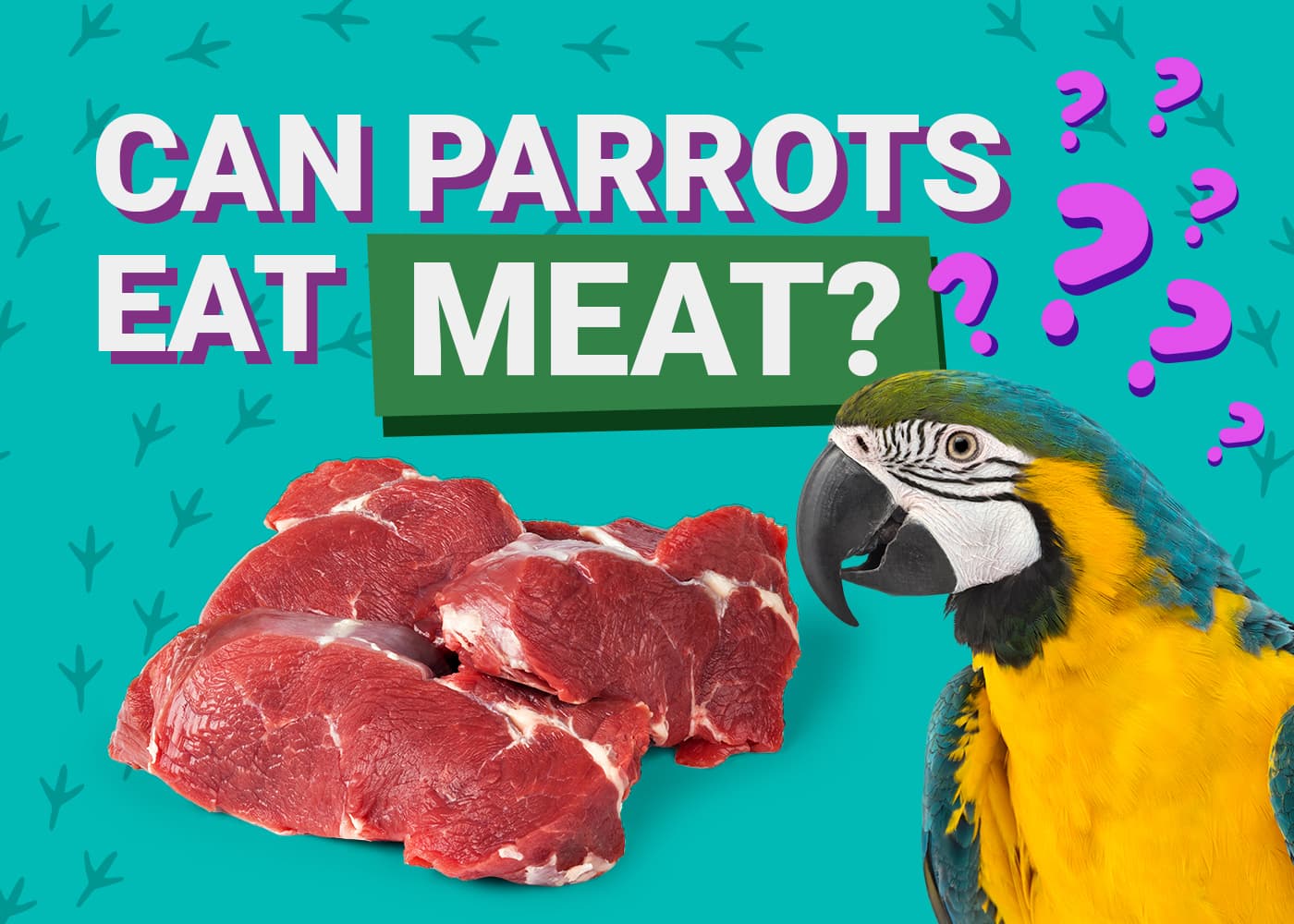
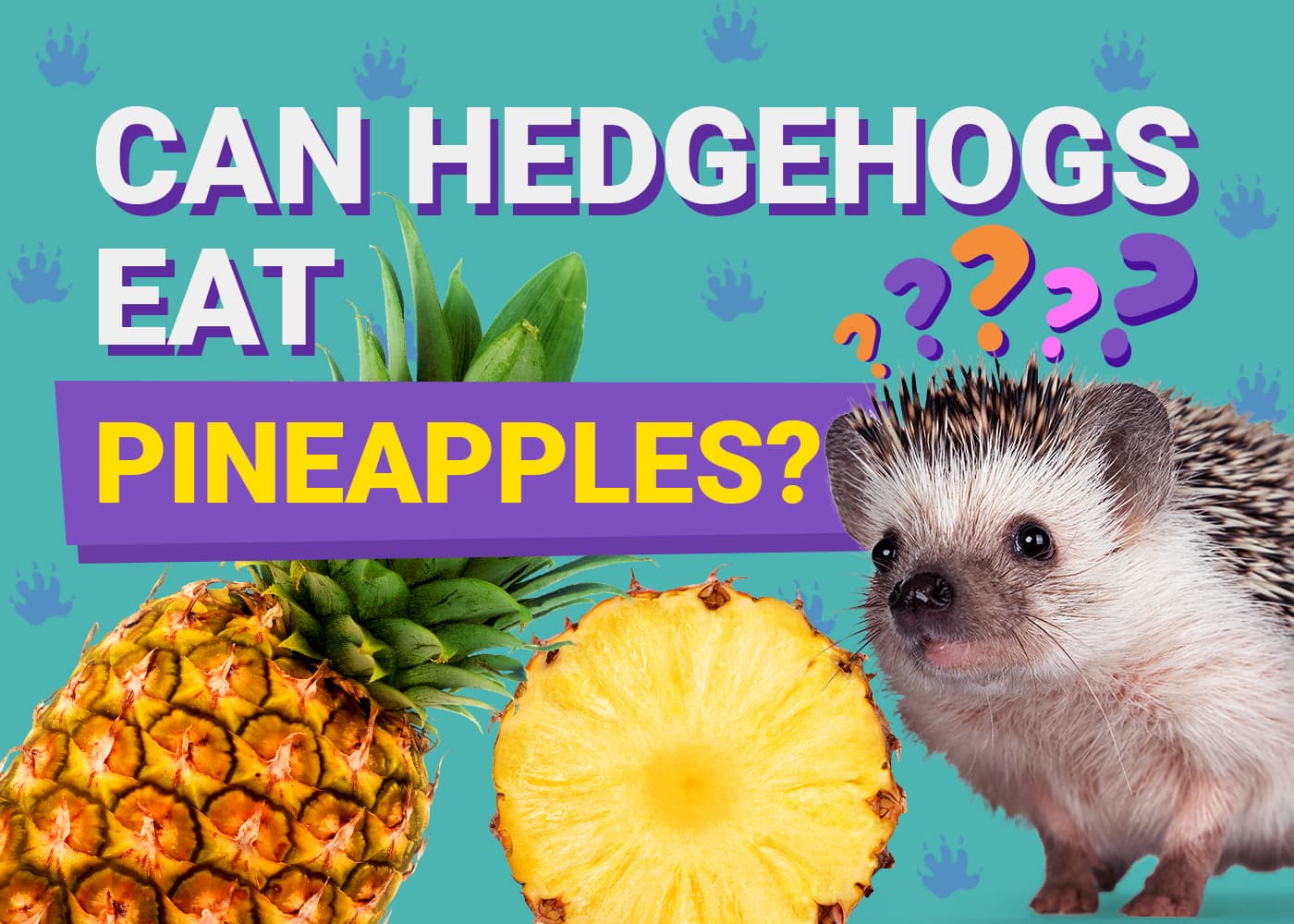


4 Responses
Hey there! Thanks for all the tips 😀😁
Do you know if coconut oil is ok to give hedgehogs? It has anti parasite benefits and healthy fat so it would be good to know it that could go on the side as a treat?
Hello I.B.,
Thank you very much for your lovely feedback and your question as it is an important one.
Feeding your hedgehog coconut oil is not recommended. Their gastro-intestinal tract is too short to process it and also there is no proven efficacy against their intestinal parasites. They have the digestive physiology of an insectivore so they will not benefit from a plant-based “healthy” fat as one might assume.
If you would like to discuss the best possible diet for your hedgehog with our exotic animal veterinarian, please write us an email on [email protected] and set an appointment with him. He will be happy to provide you with a lot of useful information.
Hello Radim!
Thank you very much for your reply, that made so much sense! I have been pleased to see some improvement in her spirits and so will stick to he hedges friendly diet she is currently on, with other previously confirmed supplements. Thanks again so much for your clear and super helpful response!
Kind regards, Iona
Hello Iona,
thank you very much for letting me know! I am very happy to hear your hedgehog is doing better!
Best Wishes, Radim